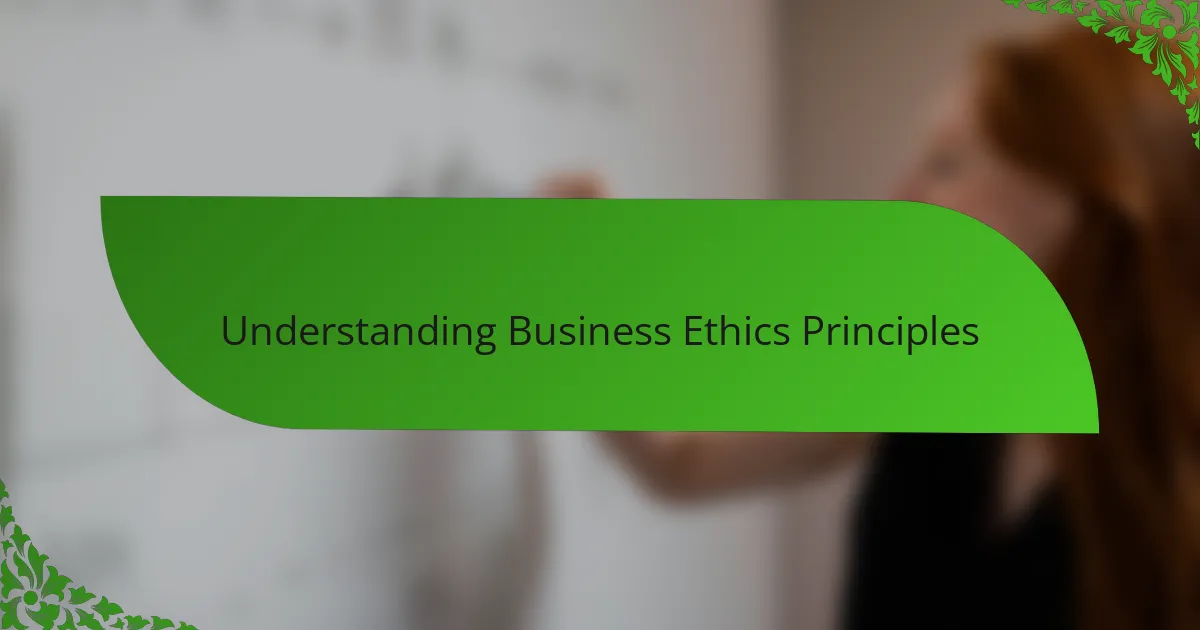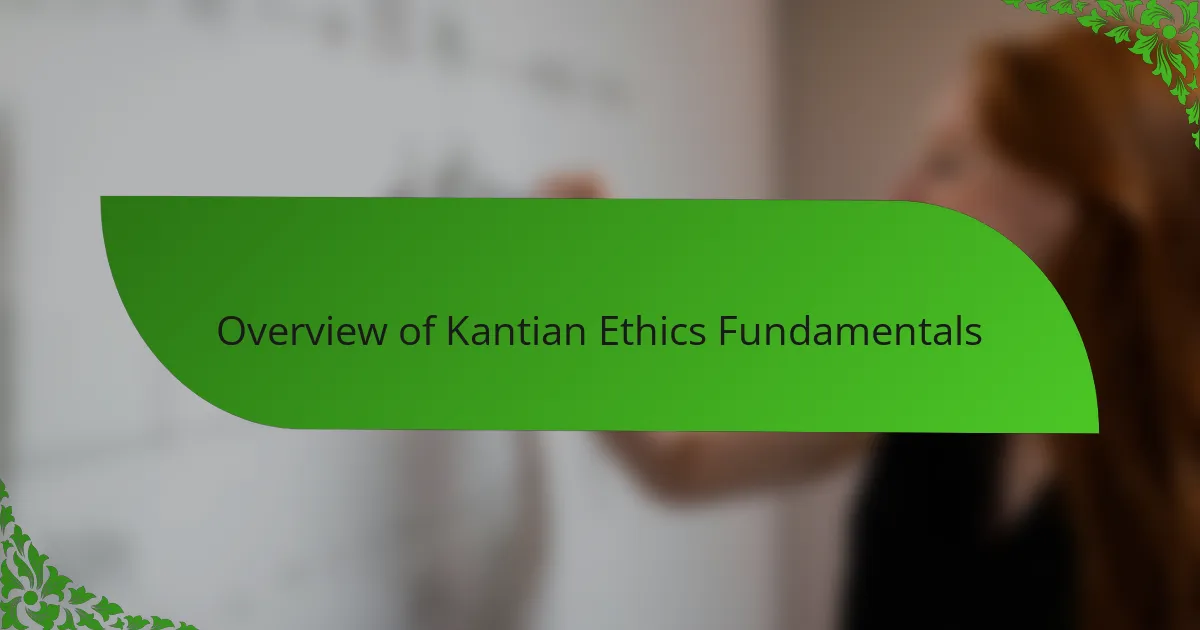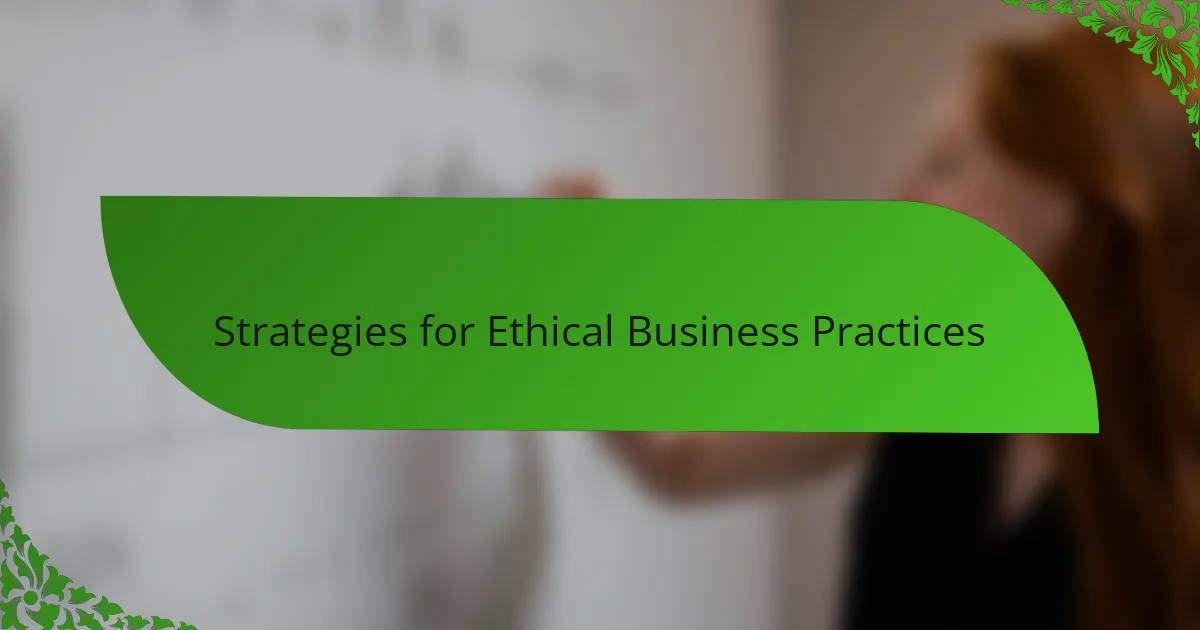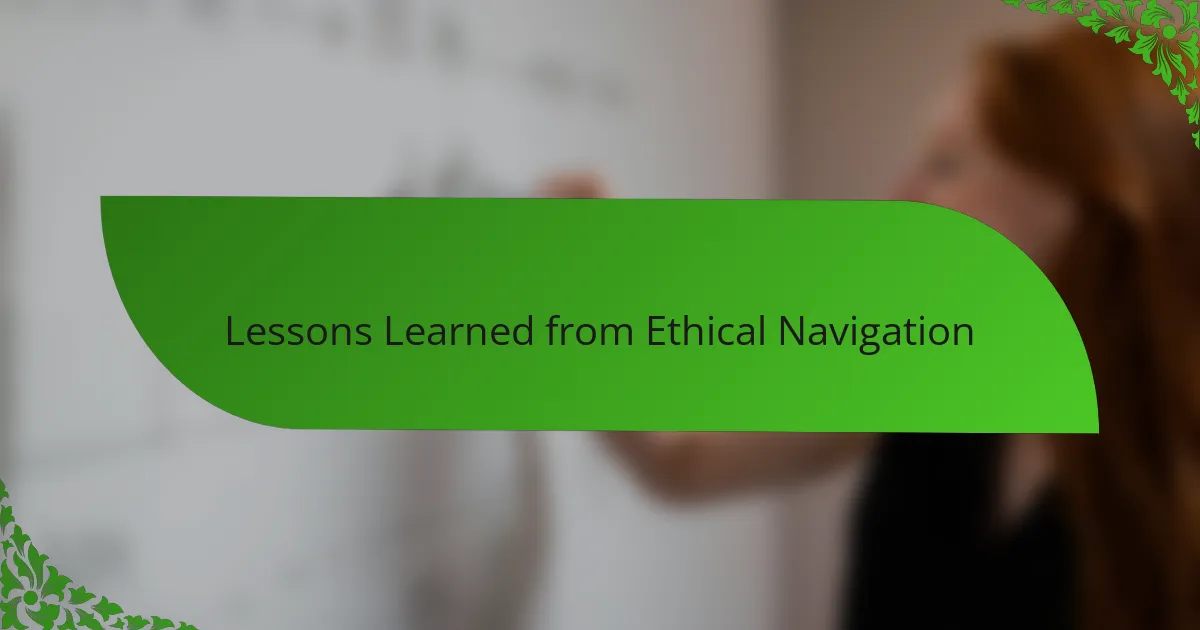Key takeaways
- Business ethics prioritize fairness, honesty, and respect, fostering long-term trust and integrity over immediate profits.
- Kantian ethics emphasizes moral duty and the dignity of individuals, prompting decisions based on universalizability rather than self-interest.
- Holding firm to ethical principles can be challenging but ultimately builds lasting trust and transforms business relationships.
- Consistently applying ethical standards creates a strong moral foundation, guiding decision-making even in uncertain situations.

Understanding Business Ethics Principles
Understanding business ethics principles starts with recognizing that these are more than just rules—they’re a reflection of our values in action. When I first faced a tough decision at work, I realized that ethics challenge us to consider not only what is profitable but also what is right. Have you ever wondered why some businesses thrive long-term while others falter despite financial success?
To me, ethics anchor decisions in fairness, honesty, and respect. These principles act like a compass when the path forward isn’t clear. I recall a moment when standing by these values meant speaking up against a convenient shortcut—it was uncomfortable but ultimately rewarding.
Looking deeper, business ethics principles invite us to think beyond immediate gains and reflect on the impact of our choices. It’s about building trust and integrity, qualities that can’t be measured on a balance sheet but are felt profoundly in relationships and reputation. Don’t you think that’s what truly sustains success?

Overview of Kantian Ethics Fundamentals
Kantian ethics centers on the idea that moral actions stem from duty rather than consequences. When I first encountered this, it shifted how I viewed right and wrong—no longer about what benefits me or the company, but what we ought to do. Have you ever tried making a choice just because it was your duty, even if the outcome seemed uncertain?
At its core is the “categorical imperative,” which, simply put, asks: Can I will this action to become a universal rule? I remember wrestling with this during a contract negotiation—could I honestly want everyone to act the same way I was considering? That question forced me to pause and rethink my approach entirely.
What resonated with me most is Kant’s respect for individuals as ends, never merely as means. In business, that’s a powerful reminder that people aren’t just resources or numbers but deserve dignity. Isn’t that perspective refreshing when commerce often feels so impersonal?

Applying Kantian Ethics in Business Decisions
Applying Kantian ethics in business decisions means asking myself, “Would I want everyone to make this same choice?” It’s not always easy—like when I had to decide whether to disclose a product flaw that might hurt sales. The categorical imperative made me realize that honesty isn’t just the right thing but a rule worth universalizing.
I’ve found that treating colleagues and clients as ends, not means, reshapes how negotiations unfold. Instead of focusing solely on profits, I started valuing transparency and respect, even when it slowed the process. Has embracing this principle ever made you rethink what success truly means in business?
Sometimes, adhering to duty over outcome feels risky, especially if results aren’t immediate. Yet, I remember a time when choosing the ethical route built trust that paid off in unexpected ways, long after the decision was made. Doesn’t that challenge the common belief that business is all about quick wins?

Real Life Challenges with Kantian Ethics
One challenge I often faced with Kantian ethics was its rigidity when situations demanded flexibility. There were moments when sticking strictly to duty felt out of touch with the real complexities of business, like when bending a rule slightly might have prevented harm. Have you ever struggled between doing what’s right by principle and what seems better in practice?
Another difficulty came from the categorical imperative’s demand for universalizability. I remember a time I hesitated, wondering if a decision I thought ethical could genuinely apply to everyone without causing unintended chaos. It made me realize that sometimes, Kant’s neat formulas need careful interpretation to fit messy real-world contexts.
Embracing respect for individuals as ends was deeply rewarding but also emotionally taxing. Standing firm against practices that treated people as mere tools sometimes made me feel isolated, even vulnerable. Do you think holding fast to such ideals in a cutthroat environment is worth the personal cost? For me, the answer came through the trust and loyalty those choices eventually built.

Strategies for Ethical Business Practices
When I started shaping ethical strategies for business, I realized that grounding every decision in the principle of universalizability helped me avoid shortcuts that felt tempting but morally shaky. Have you ever caught yourself justifying a choice because “everyone does it”? That question became my checkpoint to steer clear from normalizing questionable actions.
One practical strategy I found effective was prioritizing transparency—not just as a policy but as a genuine commitment. I once chose to openly communicate a pricing change, knowing it might upset a few clients. Yet, this honesty fostered deeper trust and respect, proving that ethical clarity often pays off in ways that metrics can’t capture.
Another approach that reshaped my perspective was treating every interaction as if the people involved were ends in themselves, not merely means to an outcome. It felt challenging at times—especially in high-pressure negotiations—but recognizing the dignity of others transformed conflicts into collaborations. Have you noticed how respect can change the entire tone of a business conversation? For me, this shift redefined success beyond profits.

Personal Experiences Using Kantian Ethics
Using Kantian ethics in my daily business interactions often meant confronting tough truths about myself. I remember once realizing I’d been tempted to withhold information to close a deal faster—but asking, “Could this choice be a universal rule?” stopped me cold. That moment felt like a moral wake-up call, pushing me toward greater honesty.
There were times when following duty over convenience felt isolating. I recall feeling uneasy when I stood my ground against a popular but ethically questionable decision. Yet, in hindsight, that steadfastness earned me respect and deeper trust from my colleagues—proof that integrity resonates beyond immediate approval.
Have you ever wondered if doing what’s ethically right always pays off? I certainly have, especially when results aren’t instant. However, my experience tells me that consistently acting on Kantian principles builds a foundation of trust that, over time, becomes one of the most valuable assets in any business relationship.

Lessons Learned from Ethical Navigation
Navigating business ethics through Kant’s lens taught me the importance of consistency. I realized that when I treated each decision as if it should become a universal rule, it grounded me in a steady moral framework—even when temptations to take shortcuts whispered loudly. Have you ever noticed how having a clear ethical standard cuts through uncertainty like a beacon?
Another lesson came from valuing people as ends in themselves. I remember feeling vulnerable standing firm on this during tough negotiations, but it transformed how others saw me and how we worked together. Isn’t it fascinating how respecting others’ dignity can turn conflicts into genuine collaboration?
Finally, I learned that ethical navigation isn’t always comfortable or quick. Sometimes doing the right thing felt isolating or risky, yet over time, those choices built trust that no business metric could measure. Doesn’t that challenge the idea that success is all about immediate results? For me, ethics became the long game worth playing.